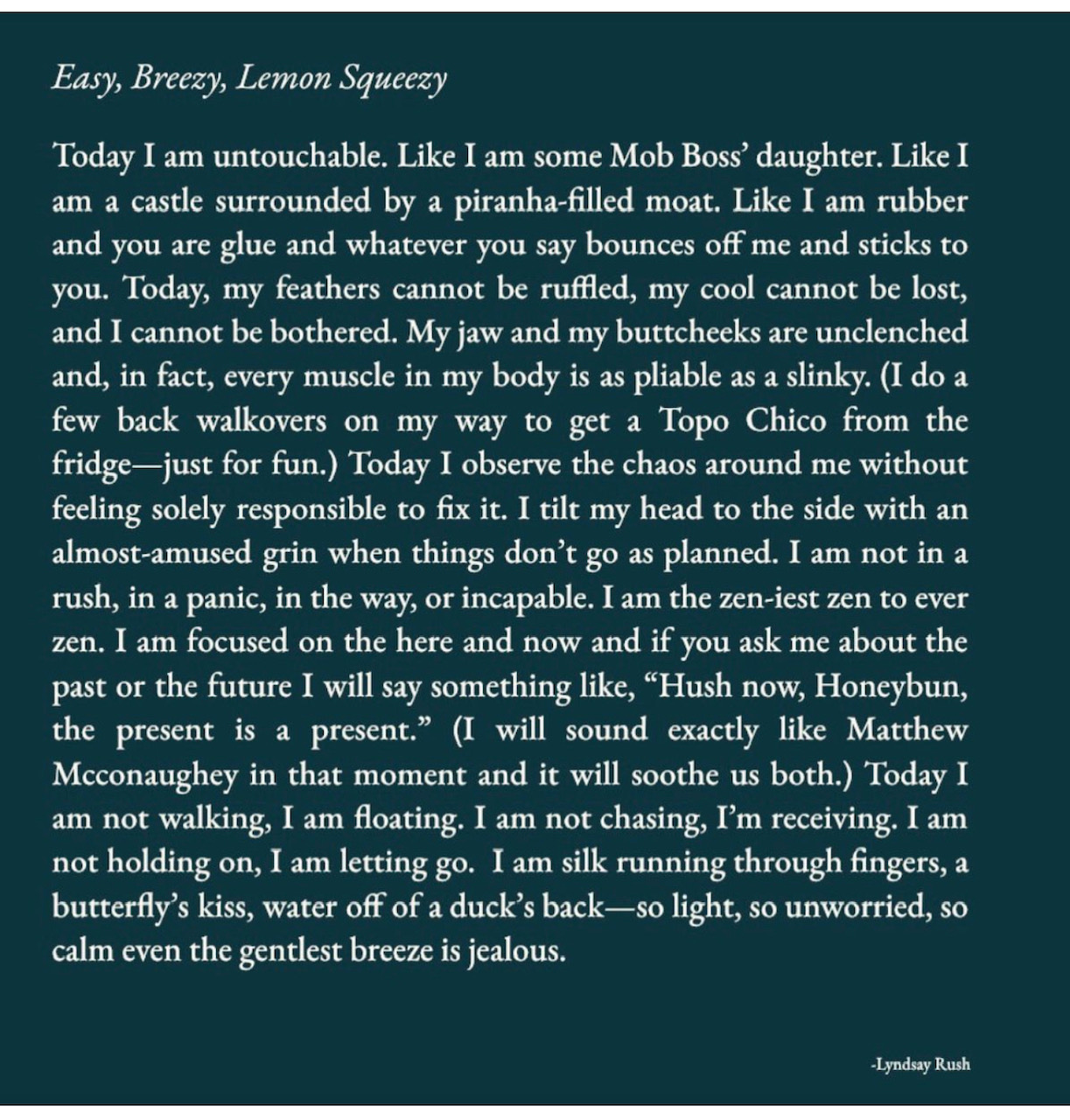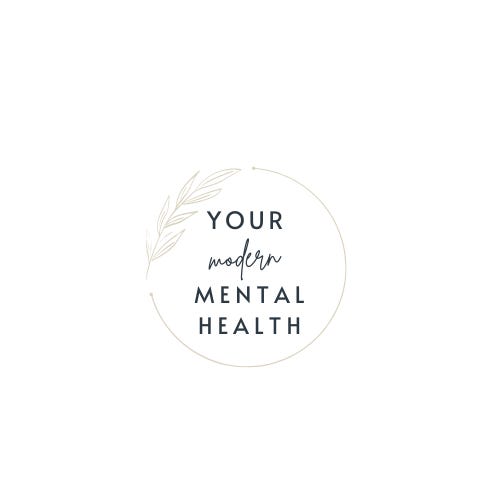Therapy is less stigmatized today than ever before (hell yeah) but there are still a lot of skeptics and criticisms of the process. Many are fair. But one criticism I heard recently was comparing having a therapist to “paying someone to be your friend” like being in a sorority is “having your parents buy your friends.” Now, I wasn’t in a sorority and other than rushtok I don’t know anything about them, but I’m guessing that’s an unfair generalization. Comparing a therapist to a paid friend makes my eyes pop out of my head, but I can also understand how someone got there. SO! Let’s talk about some of the ways having a therapist is totally different than talking to a friend.
1. Not a reciprocal relationship.
The therapist’s duty to uphold boundaries is a key differentiator in the therapeutic relationship. Unlike most other relationships, therapists are not getting their personal needs met through the interactions. In a friendship you expect a two way interaction; you are each vulnerable and share with one another and trust is formed. But there aren’t any rules or boundaries established around that trust and we kind of hope for the best. Like "if you say you won’t tell anyone else, you won’t, right?”
In a therapeutic relationship, only the client is sharing and allowing themselves to be vulnerable as trust is established over time. The therapist upholds strong boundaries so you continue to feel safe to do so and the focus always stays on you. It is an inherently one-sided relationship by design and that’s what keeps it safe and sacred for you.
2. Teaching & Collaboration
All therapists have different styles but in most relationships there is a significant collaborative and teaching component. When done correctly, therapy is always working toward a general goal that you can essentially become your own “therapist”. Over time you’ll learn tools and resources to be able to think and behave differently in your own life as an outcome of the therapeutic relationship. In a friendship you are probably venting or getting emotional support but likely not being educated by one another. Your therapist is skilled at not only supporting and validating you but also teaching you why you do the things you do so you can understand yourself. You can’t change something if you don’t understand it.
3. Judgement Free
You’re not going to believe me when I say this but I’m going to say it anyway. Your therapist doesn’t judge you. Really. Your therapist has unconditional positive regard for you, meaning because of the nature of your relationship and the way they get to understand you, they don’t judge you for your thoughts or actions. They care about you deeply. When I understand the constellation of a client’s life, everything they do makes sense to me, which I teach them as well. When you can understand why you do something, you develop compassion for yourself instead of judgment. It’s beyond liberating.
p.s….this is why upholding the integrity of the therapeutic relationship is so important.
4.Telling You What You Need To Hear…But Not
One of my personal beliefs (and maybe this is a newsletter topic for another day) is there is no such thing as tough love, but there is a way to have a hard conversation in a kind way. It is a skill that isn’t natural to most and you have to be confident in your ability to handle the other person’s emotional reaction and be confident that they’re ready to hear what you’re going to say. This looks like telling someone something they need to hear, even though it will be hard, in a way that is gentle, assertive and productive. Good therapy is a lot like that. Much of the work I do is walking someone through, over the course of several months or longer, a hands on, tailored and intentionally paced experience of “telling you what you need to hear” while also empowering you to make changes on your own. A well meaning friend who, after a few cocktails might say “look I’m not trying to be a bitch but here’s what I think you should do….”
See…not the same thing :)
5. Not Afraid of a Challenge
Your friends are likely going to tell you what you want to hear and what they feel comfortable saying. Most people try to avoid conflict and disappointing others like their life depends on it which is totally normal. The therapeutic relationship is a unique place to be challenged and to practice challenging someone else. Working on breaking a people pleasing tendency? Start practicing on your therapist! We are not afraid of a challenge and because our personal emotional state has strong boundaries around it in sessions, you don’t have to worry about us being disappointed in you. It’s a great relationship to start building those skills.
One Last Thing…
Therapists aren’t blank slates. Hi, we’re normal people. The prescription of “NEVER DISCLOSE ANYTHING ABOUT YOURSELF” therapists were given in grad school is outdated and the idea that your therapist is a robot isn’t helpful to you or them. The therapeutic relationship is all about relating and I can’t do that if I can’t be me. If your therapist is relatable or you feel like they could be your friend in real life that is NOT a bad thing. If you think “man, if she wasn’t my therapist we could totally be friends” then she’s probably thinking the same thing. And it sucks that you can’t.
But that means your values are likely deeply aligned and you’ll do meaningful work together so congratulations, you found a good match! I may share anecdotes from my life or experiences that are relevant to something I am working on with a client in the moment only if I believe it will be helpful to them, not because it’s helpful t me. I’m tasked with having my own supports in place to tend my mental, emotional and physical health, so I can ensure I’m never trying to get my needs met from my clients.
Interesting Read:
NYT: Mourn the Queen, Not Her Empire
Your New Mantra:

So You Know:
I have a few spots open for bi-weekly clients starting at the end of September. You can book a free discovery call here:
XO
Melissa







